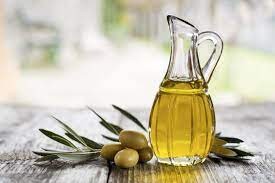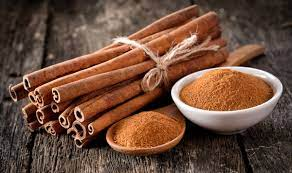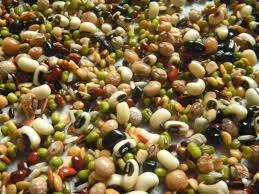Olive/Olive Oil

The Olive is an important food in Israel and a source of oil. Olives was one of the blessings of the Promised Land. Olive oil was used to burn in lamps. It was also used as a holy anointing oil and also to anoint kings and full of goodness. Olive tree and olives were used symbolically. It has been used as an emblem of peace and reconciliation and a symbol of the anointing of the Holy Spirit.
The olive was first mentioned when Noah sent out a dove to find dry land. The dove came back with an olive leaf in its mouth. Noah knew that the waters were abated from off the earth. (Genesis 8:11). The olive-branch is used as an emblem of peace and reconciliation.
The LORD God told Moses to take olive oil and shall make it an oil of holy ointment, an ointment compound after the art of the apothecary: it shall be a holy anointing oil. Moses was to anoint the tabernacle of the congregation therewith, and the ark of the testimony, and all that was within. And shall sanctify them, that they may be most holy: whatsoever touches them shall be holy. Aaron and his sons shall be anointed ad consecrated, that they may minister unto the LORD in the priest’s office. (Exodus 30:24-30).
The LORD God speaking of the Land of promise: of Hear, O Israel: The LORD our God is one LORD: And you shall love the LORD your God with all your heart, and with all your soul, and with all your might. These words the LORD commanded, shall be in your heart and taught diligently unto your children, and shall talk of them when you sit in your house, and when you walk by the way, and when you lie down and when you rise up. The houses will be full of all good things, which you do not fill, and wells you do not gig, vineyards and olive trees, which you do not plant; when you shall have eaten your fill. Then beware lest thou forget the LORD, which brought thee forth out of the land of Egypt, from the house of bondage. (Deuteronomy 6:1-12). For the LORD your God brings you into a good land, a land of brooks of water, of fountains and depths that spring out of valleys and hills; A land of wheat, and barley, and vines, and fig trees, and pomegranates; a land of oil olive, and honey; A land wherein you shall eat bread without scarceness, you shall not lack any thing in it; a land whose stones are iron, and out of whose hills you may dig brass. When you have eaten and art full, then you shall bless the LORD your God for the good land which he has given you. (Deuteronomy 8:7-10).
Solomon was determined to build a house for the name of the LORD, and a house for his kingdom. He build an house to the name of the LORD my God, to dedicate it to him, and to burn before him sweet incense, and for the continual shewbread, and for the burnt offerings morning and evening, on the Sabbaths, and on the new moons, and on the solemn feasts of the LORD our God. This is an ordinance for ever to Israel. He gave to the servants of Hiram twenty thousand baths of oil. (2 Chronicles 2:1-10).
King Solomon in the fourth year of his reign began the actual construction of the Temple for the LORD. He used the timber from the olive tree for furniture, and for ornamental carving because it was solid and durable. The wood of the tree a beautiful grain. It was used in the temple for carvings, in forming the posts of the doors, and in the construction of the cherubim. Within the oracle which is the holy of holies, the innermost room of the temple of Solomon, most holy place, holy of holies, Solomon made two cherubim’s of olive tree. The entering of the oracle Solomon made doors of olive tree; the lintel and side posts were a fifth part of the wall. The two doors also were of olive tree; and he carved upon them carvings of cherubim’s and palm trees and open flowers, and overlaid them with gold, and spread gold upon the cherubim’s, and upon the palm trees. Solomon also made the door of the temple posts of olive tree, a fourth part of the wall. (1 Kings 6:23, 31- 33). Olive branches were used for constructing booths at the Feast of Tabernacles. They should announce and proclaim in all their cities and in Jerusalem, saying, “Go out to the mountain, and bring olive branches, branches of oil trees, myrtle branches, palm branches, and branches of leafy trees, to make booths, as it is written.” (Nehemiah 8:15).
The children of Israel were commanded to use pure olive oil beaten for the light, to cause the lamp to always burn continually. (Exodus 27:20; Leviticus 24:2).
The fruit of the olive tree was gathered for the purpose of providing oil, and appears to have been shaken off by beating the branches. They were instructed to not go over the branches again. That which was left was for the stranger, for the fatherless, and for the widow. (Deuteronomy 24:20).
The olive tree was a symbol of beauty and abundance in the Hosea 14:6 and in Psalms 52:8 a Divine blessing being like a green olive tree in the house of God: I trust in the mercy of God for ever and ever. Your wife shall be as fruitful vine by the sides of your house; your children like olive plants round about your table. (Psalms 128:3).
The olive and olive tree were used symbolically. First parable symbolically can be found in Judges “The trees went forth on a time to anoint a king over them; and they said unto the olive tree, Reign thou over us. But the olive tree said unto them, Should I leave my fatness, wherewith by me they honor God and man, and go to be promoted over the trees?” (Judges 9:8-9). The oracle against Damascus connected with the judgment of Israel and the judgment on the nations. The prophet Isaiah gives the judgment of Israel and Damascus from the LORD God of Israel. “Yet gleaning grapes shall be left in it, as the shaking of an olive tree, two or three berries in the top of the uppermost bough, four or five in the outmost fruitful branches thereof, saith the LORD God of Israel.” (Isaiah 17: 6). The prophet Isaiah compares the land or earth to an olive tree and a vineyard after the harvest which suggests emptiness. Thus it shall be in the midst of the land among the people, there shall be as the shaking of an olive tree, and as the gleaning grapes when the vintage is done. (Isaiah 24:13). The LORD called the name, a green olive tree, fair, and of goodly fruit: with the noise of a great tumult he hath kindled fire upon it, and the branches of it are broken. (Jeremiah 11:16). The prophet Zechariah observed two olive trees on either side of the lampstand. The two olive branches are the two anointed ones that stand by the Lord of the whole earth. (Zechariah 4:3-13). John the Revelator gives the identity of the two olive trees and two candlesticks standing before the God of the earth. The LORD God will give power unto the two witnesses, and they shall prophesy a thousand two hundred and threescore days, clothed in sackcloth. And if any man will hurt them, fire proceeded out of their mouth, and devoured their enemies: and if any man will hurt them, he must in this manner be killed. (Revelations 11:4-5). Paul speaks of grafting a wild olive branch (the Gentile) into the good olive tree (the Jews); that unbelieving Jews (branches of the good tree) were broken off that Gentiles might be grafted in. The Jews who abide not in unbelief shall, as the natural branches, be grafted into their own olive tree for God is able to graft them in again. (Romans 11:17-24).
The LORD God also uses the olive trees as a warning. I have smitten you with blasting and mildew: when your gardens and your vineyards and your fig trees and your olive trees increased, the palmerworm devoured them: yet have ye not returned unto me, saith the LORD. (Amos 4:9). The labor of the olive shall fail, and the fields shall yield no meat; the flock shall be cut off from the fold, and there shall be no herd in the stalls. (Habakkuk 3:17). Thou shalt sow, but thou shalt not reap; thou shalt tread the olives, but thou shalt not anoint thee with oil; and sweet wine, but shalt not drink wine. Thou shalt sow, but thou shalt not reap; thou shalt tread the olives, but thou shalt not anoint thee with oil; and sweet wine, but shalt not drink wine. (Micah 6:15).
Cite Article Source
MLA Style Citation:
Holstein, Joanne “Olive/Olive Oil Misc.:.” Becker Bible Studies Library Feb 2015.< https://guidedbiblestudies.com/?p=2389 ,>.
APA Style Citation:
Holstein, Joanne (2015, February) “Olive/Olive Oil Misc.:.” Becker Bible Studies Library. Retrieved from https://guidedbiblestudies.com/?p=2389 ,.
Chicago Style Citation:
Holstein, Joanne (2015) “Olive/Olive Oil Misc.:.” Becker Bible Studies Library (February), https://guidedbiblestudies.com/?p=2389 , (accessed).


